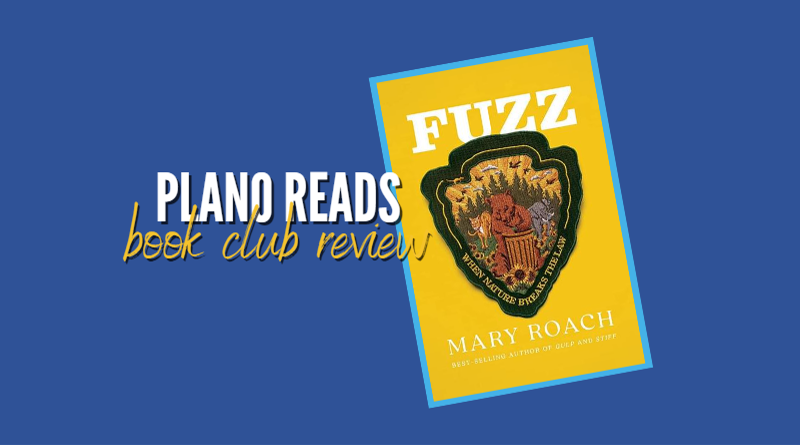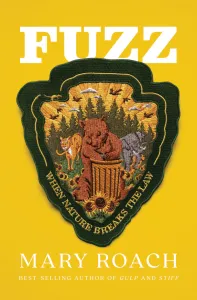
Plano Reads: ‘Fuzz: When Nature Breaks the Law’ Due June 13 for Second Tuesday Book Club
Second Tuesday Book Club will meet in person from 7 to 8:15 p.m. on Tuesday, June 13, in the program room at Schimelpfenig Library to discuss Fuzz: When Nature Breaks the Law, by Mary Roach. Face coverings aren’t required, but we do observe social distancing at our meetings. Please email Cathe Spencer at cathes@plano.gov if you have questions or comments. See you as we welcome summer at Schimelpfenig Library!


Fuzz: When Nature Breaks the Law by Mary Roach
Available as Print | Large Print | eBook | Playaway
A new work of nonfiction from the distinctive voice of science journalist Mary Roach, this is a look at the unpredictable intersection where humans and wildlife meet.
On June 26, 1659, a representative from five towns in a province of northern Italy initiated legal proceedings against caterpillars … for trespassing and pilfering from people’s gardens and orchards. A summons was issued and five copies were made and nailed to trees in forests adjacent to each town. The caterpillars were ordered to appear in court on the twenty-eighth of June, at a specified hour, where they would be assigned legal representation.
Did those caterpillars appear? Did their legal case go forward? And what’s to be done about a jaywalking moose? A grizzly bear caught breaking and entering? A murderous tree? As New York Times best-selling author Mary Roach discovers, the answers are best found not in jurisprudence but in science: the curious science of human-wildlife conflict, a discipline at the crossroads of human behavior and wildlife biology.

Wall Street Journal reviewer Julie Zickefoose says, “Ms. Roach lets us ride in her pocket as she climbs into trucks with laconic wildlife officers, or kneels to puzzle out evidence at a training course on wildlife-attack forensics. She’s apparently fearless—and always bemused. She’s Everywoman, gawping and giggling, then zeroing in on the heart of the matter with a satisfying summary—or a bemused shrug … a high-concept, somewhat unruly, utterly fascinating book. And with a chilling smile and signature gallows humor, Ms. Roach reminds us who, in the end, remains the most dangerous animal of them all.”
Writing in Booklist, Tony Miksanek comments, “Roach writes splendidly about the often-surprising challenges inherent in coexisting with other animals in their natural habitats … Intrepid, witty, and elucidating, best-selling Roach is an ongoing popular-science supernova.”
“This book is such a rich stew of anecdotes and lore that it’s best savored slowly, bit by bit. Roach doles out surprising true tales from her around-the-world survey of human-wildlife relations,” notes Alice Cary in Bookpage. She adds, “Roach also tackles deeply serious topics in Fuzz, such as the death and destruction caused by certain wandering elephants, or bears whose DNA needs to be traced in order to track down one who killed a person. But no matter the situation, Roach approaches it with contagious enthusiasm … Fuzz will open readers’ eyes to a myriad of animal rights issues, and possibly change their attitudes about how to approach them.”


Mary Roach is the author of the New York Times bestsellers Stiff, Spook (recently reissued as Six Feet Over), Bonk, Gulp, Grunt, and Packing for Mars.
Ms. Roach has written for National Geographic, Wired, and The New York Times Magazine, and her TED talk made the TED 20 Most Watched list. She has been a guest editor for Best American Science and Nature Writing, a finalist for the Royal Society’s Winton Prize, and a winner of the American Engineering Societies’ journalism award. Although her undergraduate degree at Wesleyan University was in psychology, freelance journalism led her into writing about science, which has become her signature interest.
A recent article in East Bay magazine by Lou Fancher praised her for her “comic wit and humor; poetic flare with language; scholarly attention to detail and context; a joyful, exuberant, near-giddy kid-like curiosity, and a drill sergeant’s discipline and dedication when it comes to delivering robust facts and real science.”




